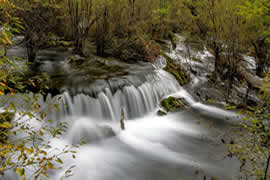DNS轻量级缓存服务Dnsmasq发布2.69版本。2013-04-10 上一个版本是2013-12-08的2.68。我现在用它做DNS代理缓存及内网hosts主机名集中管理(也可以做DHCP),非常好用。
DNSmasq是一个轻巧的,容易使用的DNS服务工具,它可以应用在内部网和Internet连接的时候的IP地址NAT转换,也可以用做小型网络的DNS服务。
完全改进:
version 2.69
Implement dynamic interface discovery on *BSD. This allows
the contructor: syntax to be used in dhcp-range for DHCPv6
on the BSD platform. Thanks to Matthias Andree for
valuable research on how to implement this.
Fix infinite loop associated with some --bogus-nxdomain
configs. Thanks fogobogo for the bug report.
Fix missing RA RDNS option with configuration like
--dhcp-option=option6:23,[::] Thanks to Tsachi Kimeldorfer
for spotting the problem.
Add [fd00::] and [fe80::] as special addresses in DHCPv6
options, analogous to [::]. [fd00::] is replaced with the
actual ULA of the interface on the machine running
dnsmasq, [fe80::] with the link-local address.
Thanks to Tsachi Kimeldorfer for championing this.
DNSSEC validation and caching. Dnsmasq needs to be
compiled with this enabled, with
make dnsmasq COPTS=-DHAVE_DNSSEC
this add dependencies on the nettle crypto library and the
gmp maths library. It's possible to have these linked
statically with
make dnsmasq COPTS='-DHAVE_DNSSEC -DHAVE_DNSSEC_STATIC'
which bloats the dnsmasq binary, but saves the size of
the shared libraries which are much bigger.
To enable, DNSSEC, you will need a set of
trust-anchors. Now that the TLDs are signed, this can be
the keys for the root zone, and for convenience they are
included in trust-anchors.conf in the dnsmasq
distribution. You should of course check that these are
legitimate and up-to-date. So, adding
conf-file=/path/to/trust-anchors.conf
dnssec
to your config is all thats needed to get things
working. The upstream nameservers have to be DNSSEC-capable
too, of course. Many ISP nameservers aren't, but the
Google public nameservers (8.8.8.8 and 8.8.4.4) are.
When DNSSEC is configured, dnsmasq validates any queries
for domains which are signed. Query results which are
bogus are replaced with SERVFAIL replies, and results
which are correctly signed have the AD bit set. In
addition, and just as importantly, dnsmasq supplies
correct DNSSEC information to clients which are doing
their own validation, and caches DNSKEY, DS and RRSIG
records, which significantly improve the performance of
downstream validators. Setting --log-queries will show
DNSSEC in action.
If a domain is returned from an upstream nameserver without
DNSSEC signature, dnsmasq by default trusts this. This
means that for unsigned zone (still the majority) there
is effectively no cost for having DNSSEC enabled. Of course
this allows an attacker to replace a signed record with a
false unsigned record. This is addressed by the
--dnssec-check-unsigned flag, which instructs dnsmasq
to prove that an unsigned record is legitimate, by finding
a secure proof that the zone containing the record is not
signed. Doing this has costs (typically one or two extra
upstream queries). It also has a nasty failure mode if
dnsmasq's upstream nameservers are not DNSSEC capable.
Without --dnssec-check-unsigned using such an upstream
server will simply result in not queries being validated;
with --dnssec-check-unsigned enabled and a
DNSSEC-ignorant upstream server, _all_ queries will fail.
Note that DNSSEC requires that the local time is valid and
accurate, if not then DNSSEC validation will fail. NTP
should be running. This presents a problem for routers
without a battery-backed clock. To set the time needs NTP
to do DNS lookups, but lookups will fail until NTP has run.
To address this, there's a flag, --dnssec-no-timecheck
which disables the time checks (only) in DNSSEC. When dnsmasq
is started and the clock is not synced, this flag should
be used. As soon as the clock is synced, SIGHUP dnsmasq.
The SIGHUP clears the cache of partially-validated data and
resets the no-timecheck flag, so that all DNSSEC checks
henceforward will be complete.
The development of DNSSEC in dnsmasq was started by
Giovanni Bajo, to whom huge thanks are owed. It has been
supported by Comcast, whose techfund grant has allowed for
an invaluable period of full-time work to get it to
a workable state.
Add --rev-server. Thanks to Dave Taht for suggesting this.
Add --servers-file. Allows dynamic update of upstream servers
full access to configuration.
Add --local-service. Accept DNS queries only from hosts
whose address is on a local subnet, ie a subnet for which
an interface exists on the server. This option
only has effect if there are no --interface --except-interface,
--listen-address or --auth-server options. It is intended
to be set as a default on installation, to allow
unconfigured installations to be useful but also safe from
being used for DNS amplification attacks.
Fix crashes in cache_get_cname_target() when dangling CNAMEs
encountered. Thanks to Andy and the rt-n56u project for
find this and helping to chase it down.
Fix wrong RCODE in authoritative DNS replies to PTR queries. The
correct answer was included, but the RCODE was set to NXDOMAIN.
Thanks to Craig McQueen for spotting this.
Make statistics available as DNS queries in the .bind TLD as
well as logging them.
下载:http://www.thekelleys.org.uk/dnsmasq/dnsmasq-2.69.tar.gz
DNSmasq 的详细介绍:请点这里
DNSmasq 的下载地址:请点这里
相关阅读:
Ubuntu 10.10下DNSmasq和Named似有冲突 http://www.linuxidc.com/Linux/2010-12/30338.htm
Ubuntu 8.10下使用DNSmasq提供DNS和DHCP服务 http://www.linuxidc.com/Linux/2008-12/17589.htm










